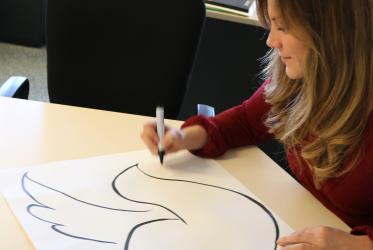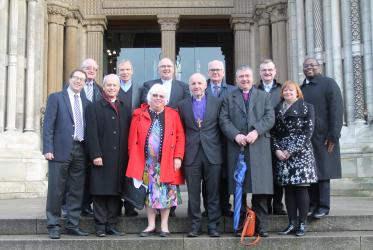Displaying 1 - 19 of 19
#WCC70: Nathan Söderblom, ecumenical pioneer
29 August 2018
“Arusha Call to Discipleship” issued
13 March 2018
"We have our work cut out for us"
10 August 2017
WCC students study what makes a peace communicator
18 July 2017
In Lebanon, refugees face hardship - but find hope
16 March 2017
How do you say “peace?”
20 February 2017
WCC delegation visits north Ireland and border barriers
02 December 2015











